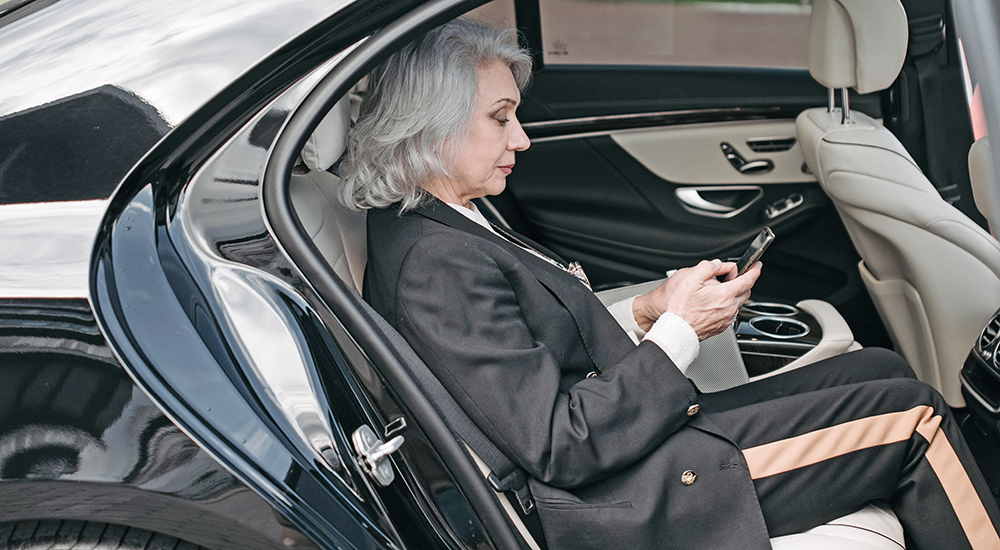Your mental health plays a fundamental role in your overall well-being. So, it’s important to have access to mental health care when and where you need it.
VA offers Veterans secure virtual tools for mental health care outside the traditional office visit. With the VA Video Connect app, you can access your mental health visits from your home or other preferred location. And you can use other VA Mobile apps to supplement treatment and support your self-care.
Virtual visits through VA Video Connect

VA Video Connect enables Veterans to meet with VA providers through secure videoconferencing. If you have a smartphone, tablet or computer with an internet connection, you can use VA Video Connect to attend TeleMental Health appointments from wherever you are.
More than 97% of VA outpatient mental health providers have conducted video telehealth visits using VA Video Connect. Should you choose, you can invite your family members or caregivers to join your video visits. Some VA providers also offer group therapy sessions or other group appointments using the app.
To learn more, visit the VA Video Connect app page.
Annie App for Veterans
Annie is a VA messaging service that empowers Veterans to take an active role in their care, including their mental health. Messages you receive from Annie could include mental health support, such as tips for reducing stress, setting boundaries, and practicing mindfulness and relaxation techniques.
For those in need of grief support, you can subscribe to receive coping strategies, encouragement and educational materials. To learn new stress management strategies, subscribe to receive motivational and skills-building text messages each week.
To learn more, visit the Annie app page.
PTSD Coach
The PTSD Coach app provides Veterans with tools to manage their PTSD symptoms. It also provides resources for family members and caregivers looking to support the Veterans in their lives who have PTSD.
You can use the app to track symptoms, find information about care and treatment options, take a PTSD self-assessment, and learn anger management and relaxation skills.
The app was developed by the VA National Center for PTSD. A clinical psychologist at the center, Dr. Pearl McGee-Vincent, said that PTSD Coach supports Veterans’ self-care by helping them track their progress and to self-manage symptoms continuously through recovery.
To learn more, visit the PTSD Coach app page.
Mindfulness Coach
You can use the Mindfulness Coach app to build a simple, consistent mindfulness practice. Mindfulness can help those who experience anxiety, depression and chronic pain. It reduces stress, improves emotional balance and increases self-awareness.
“Mindfulness can be defined as paying attention on purpose—being in the present with an attitude of nonjudgement,” said McGee-Vincent.

To learn more, visit the Mindfulness Coach app page.
Insomnia Coach
Insomnia can make it hard to function during the day. It causes concentration and mood problems and interferes with work and relationships.
If you have trouble sleeping, the Insomnia Coach app can help. You can use the app to access guided, weekly training plans to track and improve your sleep. You can use the app’s interactive sleep diary feature to track changes, and you can receive feedback about your sleep.
To learn more, visit the Insomnia Coach app page.
For many, the stigma surrounding mental health may be a barrier to seeking treatment. VA virtual care tools can reach people who may otherwise be unwilling or unable to get treatment.
To learn more about VA virtual care tools and mental health resources, watch the recorded Facebook Live presentation, VA Tools and Technology for Mental Health Month.
Topics in this story
More Stories
Watch the Under Secretary for Health and a panel of experts discuss VA Health Connect tele-emergency care.
The 2024 National Veteran Suicide Prevention Annual Report provides the foundation for VA’s suicide prevention programs and initiatives.
Theranostics is a specialized field of nuclear medicine that uses a two-pronged approach to diagnose and treat cancer.







“Normal” is a tough word for me. I’ve been Bipolar 1 and 2 for decades. I’ve tried to imagine what it might be like to live one normal day. I hope mindfulness and insomnia coaches can help many of us who have suffered for too long.
These are some handy tools but they’re probably most effective when used to supplement therapy with a licensed professional. If anyone is looking for immediate attention I’d recommend checking in to the local VA hospital’s Emergency Department so you can directly access a medical team and get your mental health in check. If you don’t have a local VA hospital or means of transportation, call them and they can send a shuttle to get you.
Hopefully this’ll fixes the existing issues
Not everyone has Facebook!!!!!!!!!
VA Mental Health is an oxymoron and a complete disaster! I will NEVER recommend a veteran to seek help with mental health issues through the A.
This is probably the only way I could ever get help. In May I had a mental breakdown, and was committed for 72 hr eval. I’ve had one visit with a VA evaluator, and one call from VA to set up an appointment with a therapist. Nothing since.
You have to be proactive with all your care; VA isnt a perfect well oiled machine yet!